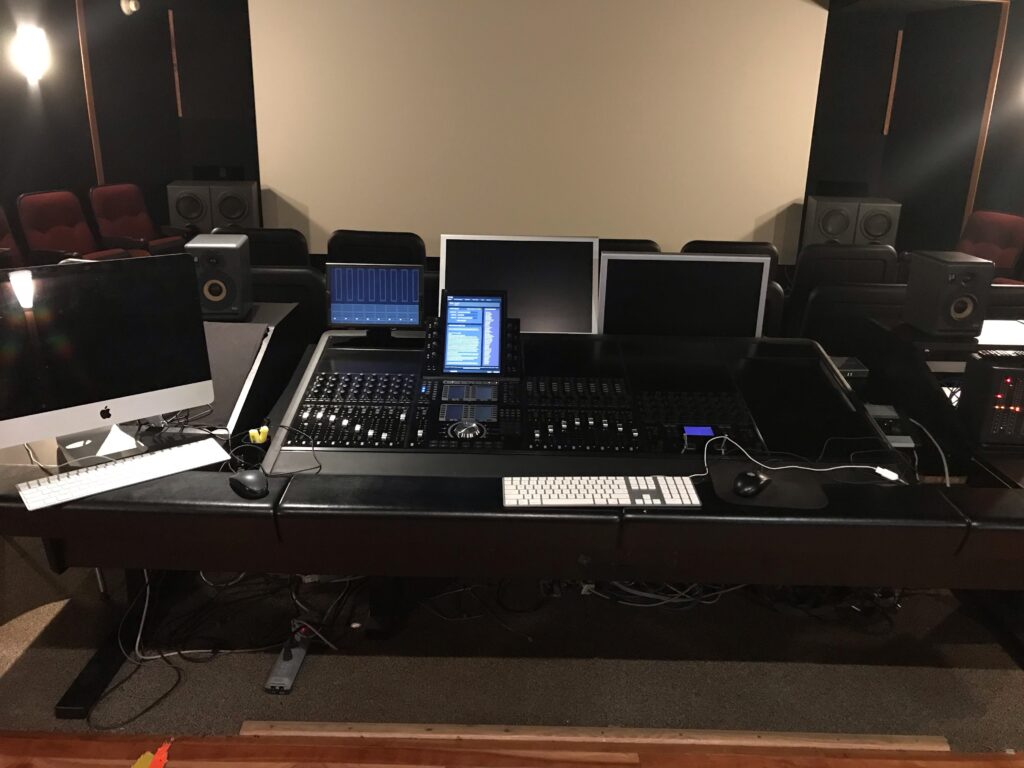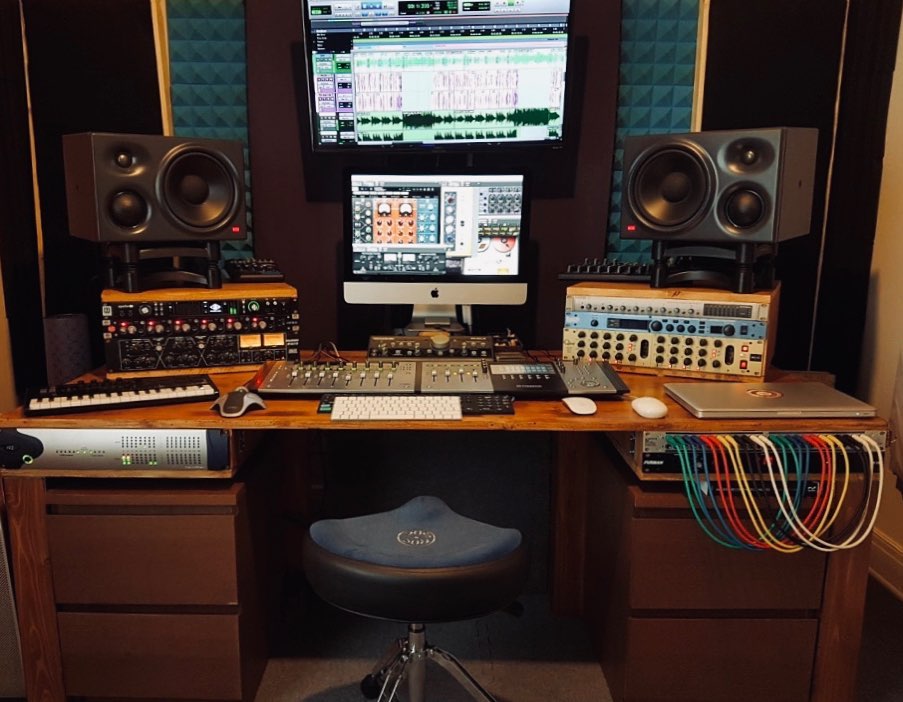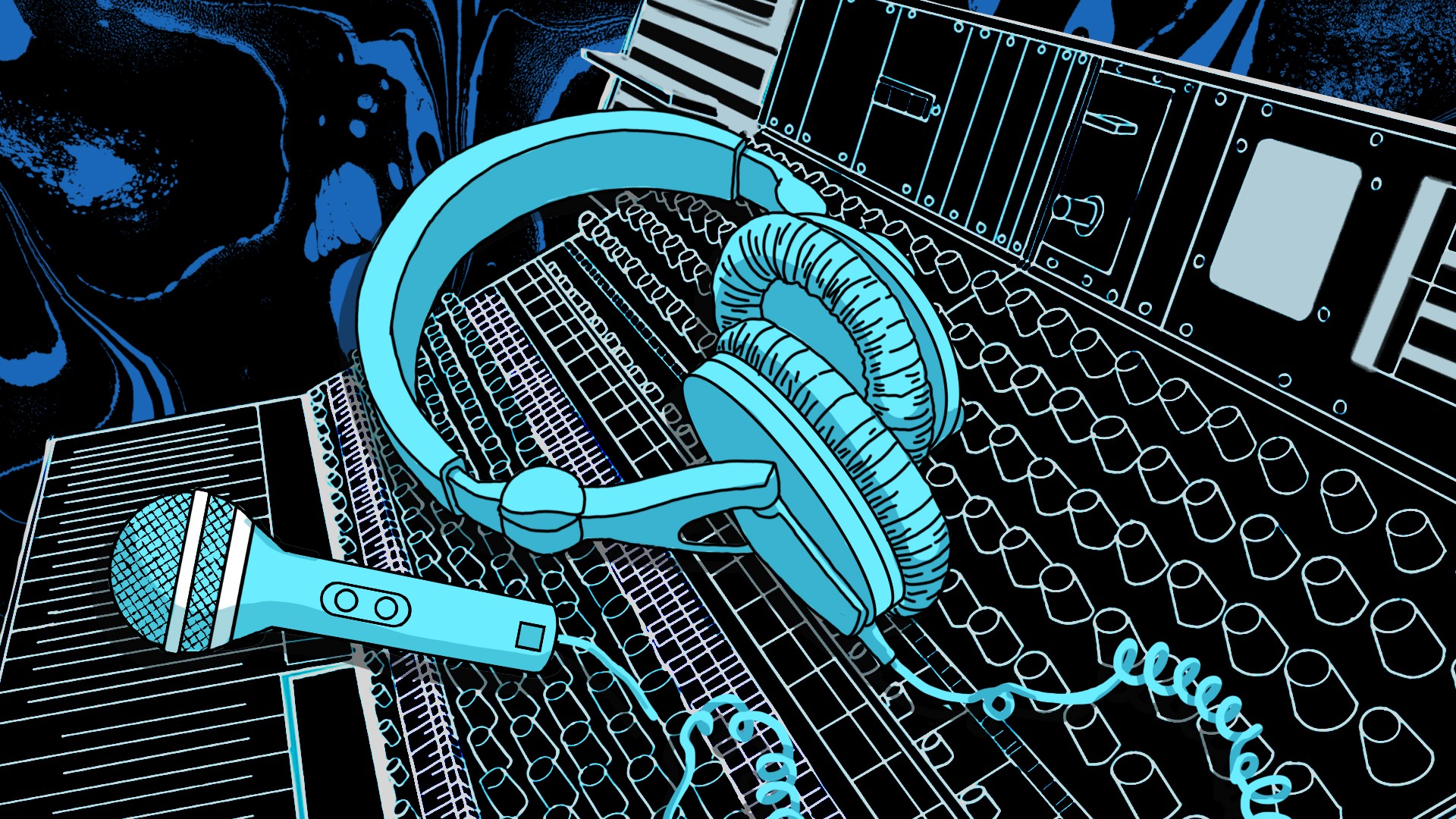Sound engineers play a crucial role in most forms of media production, whether they’re working with artists on new songs or albums, scoring the soundtrack to a film, or creating foley for a tablet or video game. That said, career opportunities aren’t bound to a studio; you can find audio engineers working at conferences, theaters, or other events that include live sound, and can even find a few under the sea, working as sonar operators. While the truly industrious can find incredibly unique career paths to follow after graduating from an audio engineering program, we’ll be focusing on the more traditional paths that most students and grads take, offering insight into what responsibilities come with typical audio jobs as well as examining the viability of a career in sound engineering, both now and in the near future.
Sound in media may not be the first thing people notice, but it is a vital component when it comes to audiences connecting emotionally with the work being presented – particularly when it’s done well. Alternatively, poor audio will detract from the overall quality of a finished piece – and will definitely not go unnoticed. The importance placed on well-executed audio is a good indicator of just how in-demand skilled audio engineers are, as companies strive to entice consumers with a complete sensory experience that includes crisp and appropriate sound.
That said, there is no denying that sound engineering is a unique craft. Those working in the field have an in-depth knowledge of studio equipment and systems that are the standard in media production. At the same time, sound engineering remains an inherently artistic profession that draws on an innate creativity and musical intuition – i.e., having a good ear and a solid sense of how to get a composition to flow well.
As mentioned, sound engineers generally find work in multimedia or other production companies, but they can also work in the educational field, at clubs or hotels, with theater and dance companies, and at radio stations. You can find out more about the various employment opportunities by heading over to our Career Support page, where we feature interviews with professionals working in sound who talk about their career paths and current positions. You can also sign up for our RAC student and grad-exclusive monthly newsletters where we share just a few of the many job postings currently available.

Here are some examples of the paths sound engineers take, both inside and out of the studio environment. It should be noted that this list is far from absolute and that we are covering only a few possible opportunities.
The in-house engineer categories can be broken down into the following:
- Recording engineers (also known as sound or audio engineers) are the ones in charge of the technical aspects of a recording session and the initial shaping of the sound. This means that they set up and maintain studio equipment, and can be tasked with something as basic as correctly placing microphones for the artists, to ensuring the overall quality of recordings through their use of the console. They have a firm grasp of different kinds of recording technology, from analog machines to digital recording programs (DAWs). Their involvement ensures that mixing engineers have solid material to work with that also meets the artists’ and producers’ expectations.
- Mixing engineers, as defined in our Introductory Mixing Q&A article, are the people who work on bringing balance and coherence to all the tracks recorded for a project by mixing them down into a single stereo track. Click the link above to read a more in-depth description of what this key job entails and to get some tips on how to start practicing your mixing, too.

- Mastering engineers are the final stop before a track is deemed radio-ready. Using their technical expertise and highly trained ear, these engineers take a good piece of audio and work on it until it’s great. They pick up any imperfections that may have happened during the audio production process and ensure that a single track sounds consistent with and compliments a larger body of work (like an album). Mastering engineers must also make sure that the quality of the sound will stay the same regardless of the playback system being used to broadcast the piece of audio.
When it comes to live sound, those interested in this field can expect to work one of the following positions:
- The Front of House (FOH) engineer, who is in charge of the sound the audience hears. Since each instrument and musician that is on stage needs a microphone, the FOH must ensure that the levels and equalization are maintained or enhanced throughout the performance for each mic. Establishing good relationships with the stage performers and other venue staff is also a key component to this role. You can find out more about working with live sound in our article titled Live Sound: Expecting the Unexpected.
- The monitor engineer controls the sound musicians hear through their monitors, which are either speaker monitors or in-ear monitor systems. When working with a band, the monitor engineer will have to create mixes that are unique to each performer, as the need to hear different instruments and vocals – all at the appropriate volume – will vary for each person on stage. Monitor engineers are also tasked with maintenance of the monitor system and microphones, in addition to setting up the stage wiring.
- The systems engineer is responsible for the sound systems in general, from installing them before a show to breaking them down at the end of the performance. However, a systems engineer’s responsibilities go far beyond this essential task – they are in charge of creating a sound system that’s safe and ready for the mixing engineer to work with. They have impressive acoustic and technical knowledge, and are skilled problem solvers.

Keep in mind, sound engineering is often a highly specialized field, and most working within it will opt to focus on one area over the course of their career.
When it comes to salaries, according to the Government of Canada’s Job Bank’s website, sound engineers can earn between $17 and $41 per hour, with the median wage falling at $27 per hour. Job prospects are also projected to be fair, so audio students and grads can rest easy knowing they have job security, both currently and in the foreseeable future.

However, in order to truly distinguish yourself in this domain, it’s important to constantly practice and hone your skills, and not be afraid to challenge yourself by working outside of your comfort zone. Networking and creating connections within the specific areas you are interested in is also vital and will help move you further along your career path. Education is an important first step to ensuring a successful career as a sound engineer, but it’s your initiative that will ultimately determine the direction it will take.
llustration by Yihong Guo





















